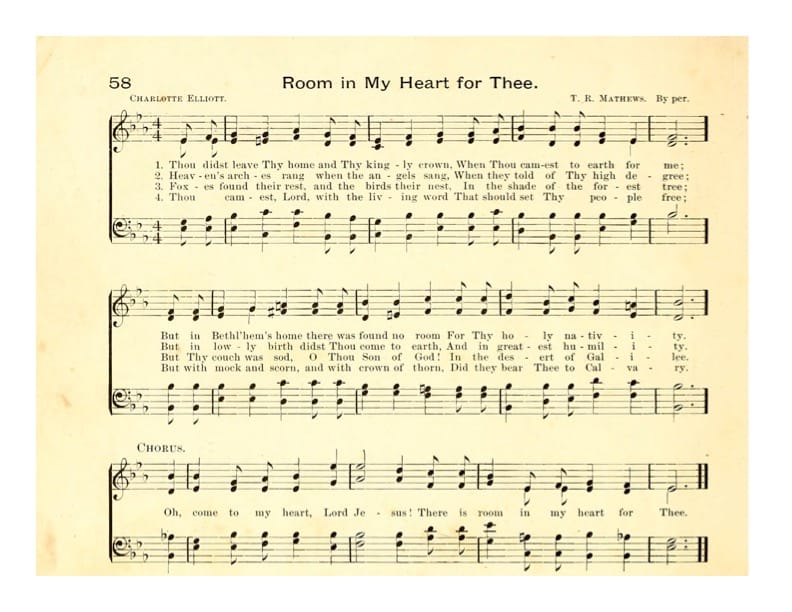A Hymn for Immigration
I was really convicted this week when I came across these lines from an old-fashion hymn: "Thy voice calls me home, saying, 'There is room. There is room at my side for thee!'”

I was really convicted this week when I came across these lines from an old-fashion hymn: "Thy voice calls me home, saying, 'There is room. There is room at my side for thee!'” Why did these simple words impact me?
Given the current immigration crisis in the United States and this Sunday's lectionary reading (ACNA Year C Proper 8) of Luke 9.51–62 — where Jesus is rejected by an inhospitable village, and Jesus notes that even wild animals have homes — the old song came to mind: "Thou Didst Leave Thy Throne". The Victorian British lyrics, by Emily Elizabeth Steele (1864), draw on Luke.
My Brief Commentary
It is no mistake that Luke is the Christobiographer who records the Samaritan refusal of hospitality for the Son of Humanity (Luke 9.52–53), as he is the same one who had recounted the Judean lack of room (Luke 2.4–7), reflected in Steele's first stanza: "But in Beth-l’em home, was there found no room for Thy holy nativity." In her middle three stanzas, Steele builds up to the ultimate rejection of the humble king when his own tribe ("Thy people") lynches him ("they bear Thee to Calvary").
But the tables are turned in Steele's fifth and final stanza (which is not preserved in the score above). At the climactic end of history, she envisions the victorious Jesus saying to the faithful, words not of inhospitable rejection but of generously gracious welcome: "There is room. There is room at my side for thee!" (perhaps pulling from Luke 14.22–23 or John 14.2, or even Luke 23.33 & 43).
Clearly the lynching mob and the Samaritan village, if not also Bethlehem, missed their opportunities to welcome the up-and-coming king. Clearly they followed a tempting narrative telling them that they could not afford to give room to a stranger . . . And if we do not have room for the stranger, can we sing Steele's refrain that we have room in our hearts for Jesus? I shudder to think what Jesus's words will be to us on judgment day (cf. Matthew 25.43–46).
Regularizing the Meter
Steele's poetic meter is irregular. It is normally set to a tune by Timothy Richard Matthews (1876) which he named after his wife and the mother of their 11 children: Margaret. His music likewise flexes to the irregular meter of Steele's lines.
Since I dislike irregular meters — for the sake of congregations who have difficulty singing them — here's my slight alteration of the text to fit the regular 5.5.8.5.5.8.8.8 arrangement of the tune by J. H. Kurzenknabe and W. W. Bentley (1891), as pictured above. I used Mission Praise #697 as my textus receptus:
Thou didst leave Thy throne
and Thy kingly crown
when Thou camèst to earth for me.
But in Beth-l’em home
was there found no room
for Thy holy nativity.
[refrain:]
O come to my heart, Lord Jesus.
There is room in my heart for Thee.
Heaven’s arches rang
when the angels sang
proclaiming Thy royal degree.
But of lowly birth
cam’st Thou, Lord, on earth
and in greatest humility.
[refrain]
The foxes found rest
and the birds their nest
in the shade of the cedar tree.
But Thy couch was sod
O Thou Son of God
in the deserts of Galilee.
[refrain]
Thou camèst, O Lord
with the living word
that should set all Thy people free.
But with mocking scorn
and with crown of thorn
did they bear Thee to Calvary.
[refrain]
When heaven shall ring
and her choirs shall sing
at Thy coming to victory:
Thy voice calls me home
saying, “There is room.
There is room at my side for thee!”
[refrain]




